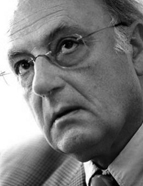

His essays often focused on 19th and 20th century history. T hrough the analysis of diverse sources, h is many published texts reveal a constant effort to decipher the intellectual endeavour of late 19thcentury Portugal to delineate the historiography of the philosophy of history. This was a time when h istory sought to assert its scientific legitimacy, employing the historical-philological method as a tool for verifying truth. It was precisely in this area of research that in 1975-76 he prefaced and annotated the Diário da Guerra Civil [Civil War Diary ] (1826-1832) by the Marquês de Sá da Bandeira.
At the same time, his engagement with contemporary challenges in historiography led him to publish Estudos de História Contemporânea de Portugal [Studies in Contemporary Portuguese History] in the following decade. In addition to editing a book on A historiografia portuguesa, Hoje [Portuguese Historiography Today], he pursued this line of inquiry by engaging with Brazilian historiography, co-organising the Historiografia luso-brasileira contemporânea [Contemporary Luso-Brazilian Historiography] with José Jobson Arruda. He also oversaw the coordination of a História de Portugal [History of Portugal], which brought together thematic essays contributed by numerous Portuguese and Brazilian historians.
The contours of José Manuel Tengarrinha's political and civic engagement were also subjects of his reflection, expressed in works such as Combates pela Democracia [Battles for Democracy] and, later in the new millennium, E o Povo, Onde Está: Política Popular, Contra-Revolução e Reforma em Portugal [And the People, Where Are They: Popular Politics, Counter-Revolution and Reform in Portugal]. He revisited key figures throughout his career as a historian, returning to the biography of José Estêvão, the thinker and political actor, 49 years after his first work on the subject. Tengarrinha also addressed political and administrative institutions, directing the publication of História do Governo Civil de Lisboa [History of the Civil Government of Lisbon].
This work is financed by national funds through FCT - Foundation for Science and Technology, I.P, in the scope of the projects UIDB/04311/2020 and UIDP/04311/2020.
